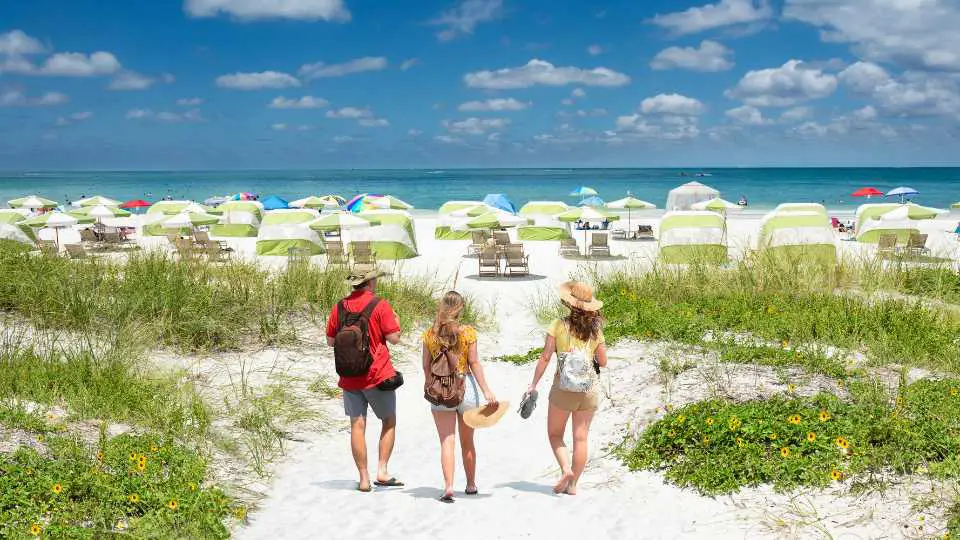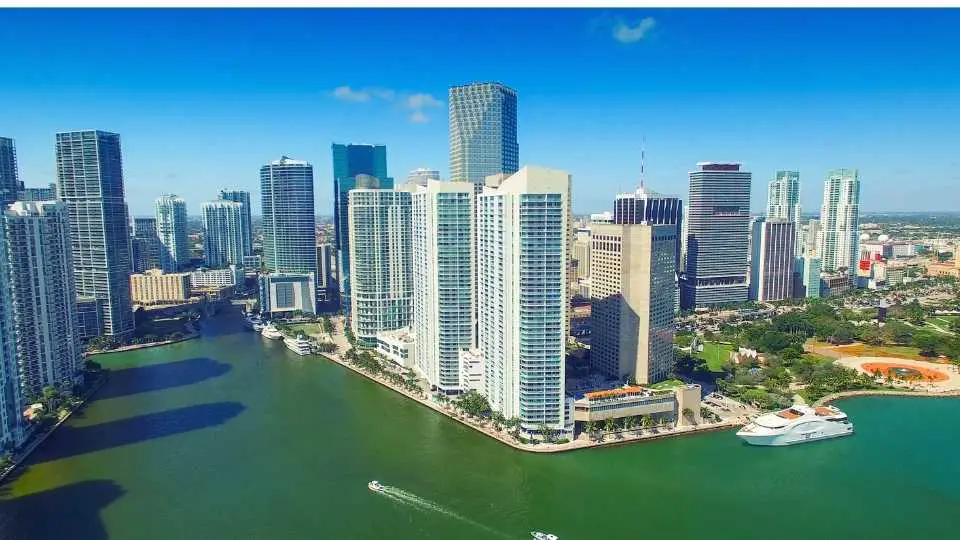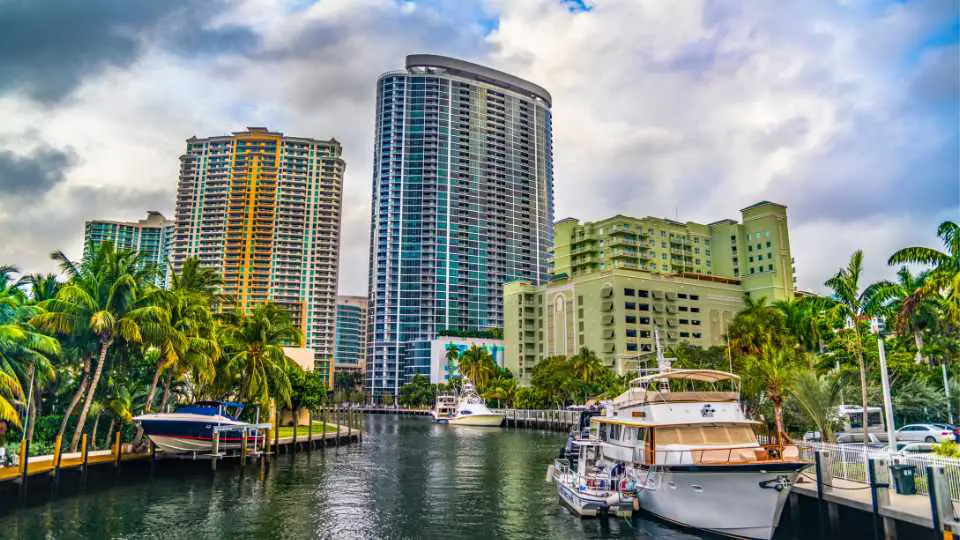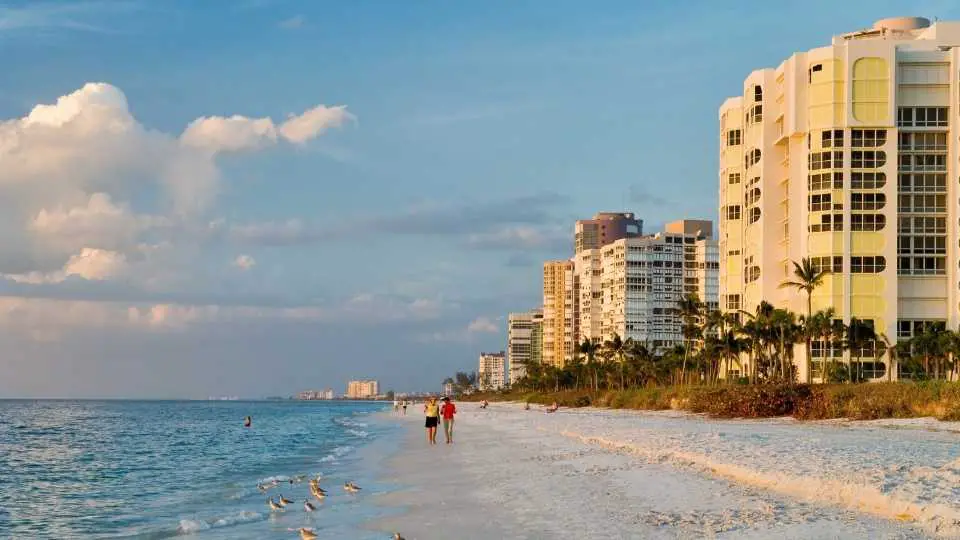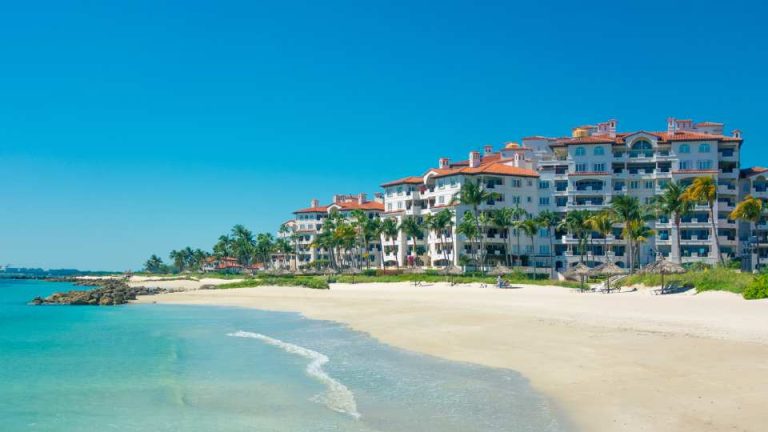The Ultimate Guide to Living in Florida: Your Comprehensive Resource
Living in Florida offers a unique blend of opportunities, lifestyle, and climate that attracts millions of residents and tourists each year. Often touted for its favorable tax climate, with no state income tax, the Sunshine State can present considerable financial advantages for its residents. Not only do these tax provisions potentially increase disposable income, but Florida also provides a cost of living that varies significantly from the urban centers of Miami to the more laid-back and suburban areas, catering to a diverse range of preferences and budgets.
Beyond the economic aspects, Florida is renowned for its varied climate, from the mild winters in the panhandle to the tropical warmth of the Keys. This allows for year-round outdoor activities, a strong pull for individuals who revel in sun-soaked beaches, and outdoor recreation.
The state’s education system, healthcare facilities, transport infrastructure, and cultural diversity also play pivotal roles in shaping the lives of its inhabitants. Each city in Florida has its unique charm and challenges, and navigating these can be pivotal in making the best out of living in the state.
Key Takeaways
- Florida’s absence of state income tax and its varied cost of living appeal to a broad demographic.
- The state’s climate favors outdoor activities, impacting lifestyle and recreation choices.
- Florida’s cities offer diverse cultural, economic, and educational environments.
Discovering the Sunshine State
Florida, known as the Sunshine State due to its year-round warm weather, beckons tourists with its vast array of attractions. The state’s long stretches of beaches provide ample opportunities for sunbathing, swimming, and water sports. Florida’s theme parks, such as Walt Disney World and the Universal Orlando Resort, offer world-class entertainment and adventure, drawing families and thrill-seekers alike.
- Outdoor Adventures:
- Beaches like those in Miami and Fort Lauderdale.
- Everglades National Park for hiking and wildlife.
- Cultural Hotspots:
- Miami’s vibrant arts scene.
- Orlando’s famous performing arts venues.
The state’s tourism industry thrives not just on natural beauty but also on a blend of cultural experiences. Visitors can delve into the state’s rich tapestry of arts at various museums, galleries, and theaters. Moreover, events like the Florida Film Festival spotlight the state’s growing influence in arts and entertainment.
Tourists seeking a slower pace can explore the quaint towns dotting the Florida Keys, where the ambiance is laid-back and centered around the natural beauty of the ocean. For those considering a more permanent stay, cities like Homestead offer affordability, while still providing access to the quintessential Florida lifestyle.
Florida is also a portrait of cultural diversity, with a vibrant mix of Hispanic, Latino, and other influences that enrich everyday life, making it a dynamic place for both visitors and residents.
See more great articles about living in Florida
Climate and Weather Patterns
The climate in Florida is predominantly warm, with high humidity levels and a significant hurricane presence during certain months. The state enjoys abundant sunshine, making its beaches alluring destinations throughout the year.
Handling the Heat and Humidity
In Florida, heat and humidity are prevalent, with the state experiencing some of the warmest weather in the United States. The southern regions are particularly humid, which can make the heat feel more intense.
- Average Temperatures:
- Miami: 70-90°F (21-32°C)
- Tampa: 61-90°F (16-32°C)
- Pensacola: 60-91°F (15-33°C)
Residents and visitors should stay hydrated and use air conditioning where available. It’s also advisable to wear light clothing and sunscreen to protect from the sun’s rays, especially during the sunniest months of March and April in the south, and April and May in the north.
Preparing for Hurricane Season
Hurricane season in Florida runs from June 1 to November 30. During this time, the state is prone to these powerful storms, which can cause significant damage.
- Preparation Checklist:
- Emergency Kit: Include water, food, medicines, and first-aid supplies.
- Evacuation Plan: Know the local evacuation routes and have a plan in place.
- Home Safety: Secure windows with storm shutters and reinforce doors.
Residents should monitor weather forecasts regularly and heed any warnings or evacuation orders from officials. Knowing one’s local climate patterns—particularly in hurricane-prone areas—is crucial for safety and property protection.

Exploring Florida’s Cities
When considering moving to Florida, it’s crucial to take a closer look at the distinct characteristics and offerings of its major cities. Each city presents a unique blend of culture, amenities, and lifestyle opportunities.
The Magic of Orlando
Orlando is renowned for its world-class theme parks, including Walt Disney World and the Universal Orlando Resort. Its economy is bolstered by the tourism industry, but it’s not just a vacation spot—it offers vibrant neighborhoods and growing employment opportunities in various sectors.
Miami’s Vibrancy
Miami pulses with a dynamic mix of cultures, with a strong Hispanic influence enriching the city. It is a hub for international trade, finance, and entertainment, boasting a lively nightlife and beautiful Art Deco architecture in South Beach.
Tampa’s Allure
Tampa’s growth is driven by a diversified economy, including health care, research, and education. Its historic Ybor City neighborhood and revitalized waterfront area, featuring the Tampa Riverwalk, demonstrate its blend of history and modern development.
Jacksonville’s Growth
As one of the largest cities by area in the contiguous United States, Jacksonville offers both suburban living and an urban downtown. The city’s port drives its economy, and it’s experiencing growth in the financial services and logistics sectors.
Sarasota’s Charm
With its world-renowned beaches, including Siesta Key, and an appealing cultural landscape featuring the Ringling Museum of Art, Sarasota is not just a resort community—it’s a thriving city with a vibrant arts scene.
Life in Fort Lauderdale
Fort Lauderdale is more than its picturesque canals and waterways. It serves as an important nautical hub and has a growing technology sector. The city’s downtown has seen significant growth, with a range of dining and entertainment options along Las Olas Boulevard.

Economic Perspectives
Florida’s economic landscape is characterized by a balanced cost of living, absence of a state income tax, and a buoyant job market. The state’s economy offers a variety of employment opportunities while the real estate market exhibits regional variations.
Cost of Living Insights
Florida’s cost of living index stands at a rating of 100.7, placing it roughly at the national average. Groceries score at 106.9, Housing at 99.6, and Utilities at 103.1. Residents benefit from no state income tax, which can lead to significant savings; for instance, an annual income of $50,000 would yield a saving of about $2,500 compared to states with an average income tax rate of 5%.
Employment Opportunities
The job market in Florida is thriving with a lower unemployment rate in comparison to the national average. Employment opportunities are abundant, particularly in industries such as tourism, health care, and aerospace. Florida’s minimum wage in 2024 is set at $12 per hour, influencing overall affordability for residents. Businesses across the state are diverse, ranging from startups to established multinational corporations.
State of the Real Estate Market
There is a general upward trend in Florida’s real estate and housing market, with regional differences in affordability. Property taxes are relatively moderate, and when coupled with no state income tax, Florida remains attractive for homeowners. Sales tax varies by county but contributes to the funding of state infrastructure and services. As of 2024, housing market trends indicate a sustained interest in both residential and commercial properties.
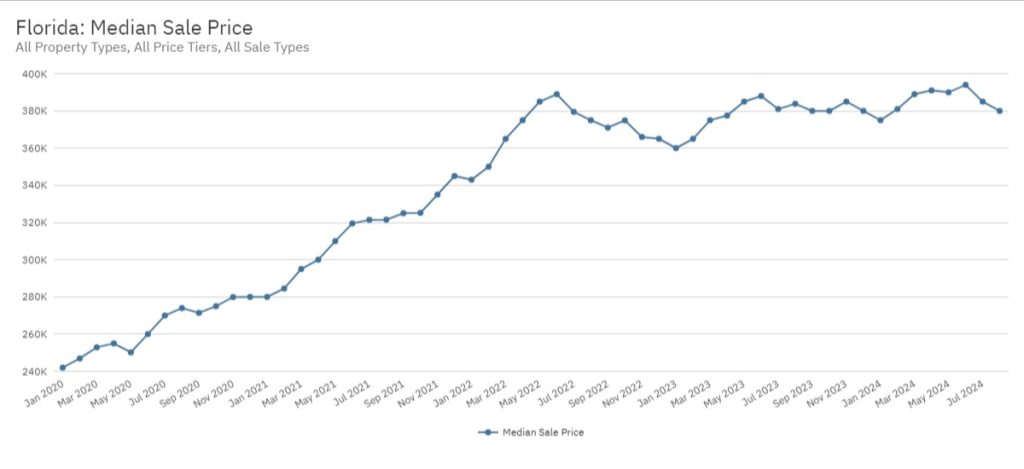
Educational Environment
Florida offers a diverse and vibrant educational landscape, providing a variety of schooling options for residents. With a range of public and private institutions, the state is known for its commitment to education, emphasizing accessibility and quality across its numerous school districts.
Evaluating School Districts
When considering school districts in Florida, parents and students should examine several key factors:
- Academic Excellence: Look for districts with high graduation rates, standardized test scores, and a reputation for academic rigor.
- Program Diversity: Identify districts that offer a wide range of programs, from STEM to the arts, to ensure a well-rounded education.
- Support Services: Seek out school districts that provide strong support services, such as counseling and special education programs.
Here is a summary of Florida’s stance within the educational realm based on available data:
- Higher Education Rankings: Florida is recognized for its strong higher education system, ranking #1 in the nation according to U.S. News and World Report.
- K-12 Education: In the sphere of pre-K through 12th grade, Florida’s school districts place in the upper echelon nationally, with a notable position for its grade schools.
One should meticulously evaluate local school districts, as they can differ significantly in quality and services offered. Each district has its unique attributes and potential drawbacks, demanding careful consideration to align with a student’s individual needs.

Lifestyle and Recreation
Florida’s lifestyle is a tapestry woven from its abundant outdoor recreation opportunities, world-class golf destinations, rich arts and cultural landscape, diverse dining scene, and family-friendly amenities. The state’s sunny disposition caters to a variety of preferences, whether for the active outdoorsy type or those who gravitate towards more subdued cultural experiences.
Parks and Outdoor Activities
Floridians and visitors alike revel in the state’s extensive park system which includes the famous Everglades National Park. State parks offer a wealth of outdoor activities like hiking, bird-watching, and wildlife photography. For the adventurous spirits, kayaking through Florida’s diverse waterways or exploring its ample coastline can be both engaging and serene.
- Everglades National Park: Explore this vast wetland’s unique ecosystem.
- State Parks: Hike, fish, or camp in one of many parks throughout the state.
Golfing Destinations
Florida’s reputation as a golfer’s paradise is well-founded, boasting over 1,300 golf courses. Courses range from the public gems to the exclusive private clubs, often set against picturesque landscapes. Top-tier courses appeal to both leisure golfers and professionals, which makes golf not just a sport but a staple of Florida recreation.
- Top Golf Courses: TPC Sawgrass, Bay Hill Club & Lodge, Streamsong Resort.
Arts, Museums, and Shopping
For those who seek cultural enrichment, Florida’s arts scene is vibrant. Cities like Miami, Tampa, and St. Petersburg flout world-class museums, galleries, and performance spaces. Upscale shopping destinations complement the arts circuit, providing a diverse experience for those who enjoy the finer things.
- Museums: The Dali Museum in St. Petersburg, the Ringling in Sarasota.
- Shopping: Miami Design District, The Mall at Millenia in Orlando.
Dining and Seafood Delights
The dining landscape in Florida is as diverse as its population, with an emphasis on fresh seafood—a must-try for any food enthusiast. From hole-in-the-wall eateries to high-end restaurants, one can enjoy a variety of cuisines, with seafood regularly taking center stage.
- Seafood Dining: Oysters in Apalachicola, Grouper sandwiches in the Gulf area.
Relocation Considerations for Families
Families considering a move to Florida have much to examine. The state offers a spectrum of communities suitable for raising children, with a focus on health and education. Areas with a high concentration of young professionals and kid-friendly amenities are plentiful, ensuring that every family member’s needs are met.
- Considerations for Families: Proximity to quality healthcare, school systems, and child-centric recreation areas.

Health and Healthcare
When considering a move to Florida, it is crucial for individuals to evaluate their healthcare needs and understand how they can interact with local wildlife and insects, both of which can influence their well-being in the Sunshine State.
Access to Healthcare Facilities
Florida is home to a diverse array of healthcare facilities, ranging from top-ranked hospitals to specialized care centers. The state boasts prominent healthcare institutions such as Baptist Health and the Mayo Clinic in Jacksonville, offering residents access to high-quality medical services. For nurses and healthcare workers, the state offers ample opportunity, with a demand for professionals to fill shifts in various facilities. The availability of such facilities contributes positively to Florida’s capacity to meet the medical needs of its residents.
- Renowned Hospitals:
- Baptist Health
- Mayo Clinic
- Healthcare Jobs:
- Per diem shifts for nurses
- Positions for nursing assistants
Living with Florida’s Wildlife and Insects
Florida’s climate attracts a wide array of wildlife and insects, some of which can pose health risks to residents. Understanding and preparing for interactions with native species is an integral part of life in Florida. Mosquitoes, for example, are prevalent and can transmit diseases. Residents often take precautions such as using repellents and maintaining screens on windows and doors to minimize contact with these insects.
- Precautions:
- Use insect repellent
- Install and repair window screens
- Common Bugs:
- Mosquitoes: Can carry diseases such as the Zika virus
- Other insects: Be aware of ants, wasps, and spiders

Transportation and Infrastructure
In Florida, the transportation system is a critical aspect of daily life, notably with the state experiencing significant migration and population growth. Residents rely on an infrastructure that is evolving to meet increased demands.
Navigating the City and County Transportation
Florida’s transportation infrastructure encompasses a variety of options, including roads, bridges, buses, and commuter rails. While Florida ranks low among states for its public transportation offerings, efforts are underway to enhance these services. In cities like Miami, Orlando, and Tampa, local transportation authorities provide extensive bus services that are vital for day-to-day travel within the county.
To address the growing needs, the Florida Department of Transportation (FDOT) is actively working with communities to improve the state’s transportation framework. Innovative technologies and designs are being incorporated to advance the quality of transportation throughout the state.
With an increasing population, counties are tasked with ensuring that transportation information is readily available and accessible to all residents. This is critical to navigate the existing infrastructure efficiently. Local governments and transportation authorities typically offer this information via websites, mobile apps, and customer service centers, ensuring that residents and visitors can find the best routes and schedules to fit their needs.
For those looking to make Florida their new home, understanding the nuances of local transportation options is essential. Each county can vary significantly in terms of the services offered, so prospective residents should research the specifics of their intended area to plan accordingly.

Housing Considerations
When considering housing in Florida, individuals are faced with the decision to rent or own, and they must be aware of the new construction trends that shape the market.
Renting vs. Owning
Renting in Florida often appeals to those seeking flexibility or those who are new to the state. The median rent in Florida tends to be higher than the national average. In comparison, homeownership may offer longer-term financial benefits like equity. However, the median home value in Florida can also be higher than the national average, making the initial investment substantial.
- Median Rent: $1,348
- Median Home Value: $406,876
New Home Construction Trends
The construction sector is witnessing an increased interest in sustainability and modern amenities. New homes in Florida are incorporating energy-efficient appliances, smart home technology, and design elements that focus on resilience to weather phenomena.
- Sustainability: Energy-efficient appliances, smart tech.
- Resilience: Designs for withstanding weather-related challenges.

Cultural Diversity and Community
Florida boasts an impressive tapestry of cultural diversity, making it a unique place to live. Residents enjoy a convergence of many different cultures, which is evident in the state’s social fabric, traditions, and even in the various events celebrated throughout the year.
Diversity: From the reinvigorating Latin influence in South Florida to the more traditional Southern culture in the Panhandle, the state’s diversity is prominent. Cities like Miami serve as cultural hubs, showcasing a blend of Latin American and Caribbean customs, languages, and cuisines.
In contrast, areas like the Tampa Bay and Orlando regions reflect a melange of global cultures, partly because of their significant tourist and international resident populations.
Community: Florida’s communities are active and engaging, with ample opportunities for newcomers to connect. Community events, local festivals, and cultural celebrations encourage participation and foster a sense of inclusivity.
- Arts and Entertainment: Floridians enjoy a wealth of museums, theaters, and galleries, which are physical testaments to the state’s cultural richness.
- Sports and Recreation: The state’s varied communities actively partake in a range of sports, from water-based activities given its extensive coastline, to traditional sports such as football.
- Festivals: Year-round, Florida hosts festivals celebrating everything from music and food to heritage and art, where the cultural diversity truly shines.
Advocacy for community bonds is strong, with neighborhood initiatives and local organizations striving to enhance community engagement. They put forth resources for building robust networks that support the diverse populations calling Florida home.

Advantages and Challenges
When considering a move to the Sunshine State, one weighs the advantages such as tax savings with the challenges like the cost of living. This section provides a succinct guide on what one can expect in terms of the pros and cons of living in Florida, as well as a practical checklist for those looking to relocate.
Pros and Cons of Florida Living
Advantages
- Tax Savings: Florida is attractive for its absence of state income tax, allowing residents to save more of their earnings. This is particularly beneficial for retirees on a fixed income.
- Weather: With its warm, sunny climate, Florida offers outdoor activities year-round.
- Diversity: The state boasts a rich cultural diversity, which enriches the community and offers varied social opportunities.
Challenges
- Affordability: Some areas, like Miami, present a higher cost of living with median home prices approximately $500,000 and rents around $3,000 per month.
- Weather Extremes: Residents must prepare for the potential of hurricanes and the accompanying need for insurance and weatherproofing.
Essential Moving Checklist
Before Relocating
- Research cost of living in different regions (North, Central, South Florida) to determine affordability.
- Develop a budget that accounts for potential savings from no state income tax against higher living expenses in certain areas.
Checklist for Moving
- Confirm housing affordability and secure a place to live.
- Plan for weather-related challenges; purchase insurance, supplies for hurricane season.
- Investigate the diversity and amenities of potential neighborhoods.
Final Thoughts
Living in Florida presents a dynamic range of opportunities and considerations. Residents relish in the state’s sunny climate and diverse communities. It is imperative for future Floridians to weigh the practical aspects of life in the Sunshine State.
Climate: Prospective residents should be prepared for hot summers and mild winters, with the added caveat of hurricane season, which necessitates proper insurance and safety measures.
Economy: Florida’s no state income tax policy can be financially beneficial, complemented by a thriving job market in tourism, agriculture, and aerospace.
| Cost Factor | Consideration |
|---|---|
| Housing | Competitive market, varies by location |
| Insurance | Higher due to natural disaster risks |
| Transportation | Car-dependent, limited public transit options |
Lifestyle: Florida is a melting pot of cultures, offering a rich tapestry of food, festivals, and arts. People seeking a lively social scene or a peaceful retirement can both find their niche.
Healthcare and Education: Well-rated healthcare facilities are spread across the state, and educational institutions range from reputable public schools to prestigious universities.
Before making the move, individuals should research the specific region of Florida they’re interested in, as experiences can drastically differ between, for instance, the burgeoning urban sprawl of Miami and the more relaxed pace of the Gulf Coast communities. The quality of life in Florida is often what one makes of it – full of potential but also requiring due diligence and realistic expectation setting.

Are you interested in owning a home in Florida?
If the allure of sun-kissed beaches, vibrant communities, and year-round warmth speaks to your heart, owning a home in Florida might just be your next great adventure!
To help our audience with buying or selling a home in Florida, Endless Summer has affiliated with Quantum Realty Advisors, Inc. (“Quantum”) which is a licensed Florida real estate company that has been in business since 1998.
From less than $500,000 to more than $5 million, the Quantum team will be happy to assist with your vacation home buying process. Quantum’s experienced real estate advisors will take the time to discuss exactly what your are looking for in a vacation home as well your what will fit into you budget.
When you are ready to begin, they will be with you every step of the way. Click here to contact the team at Quantum.
